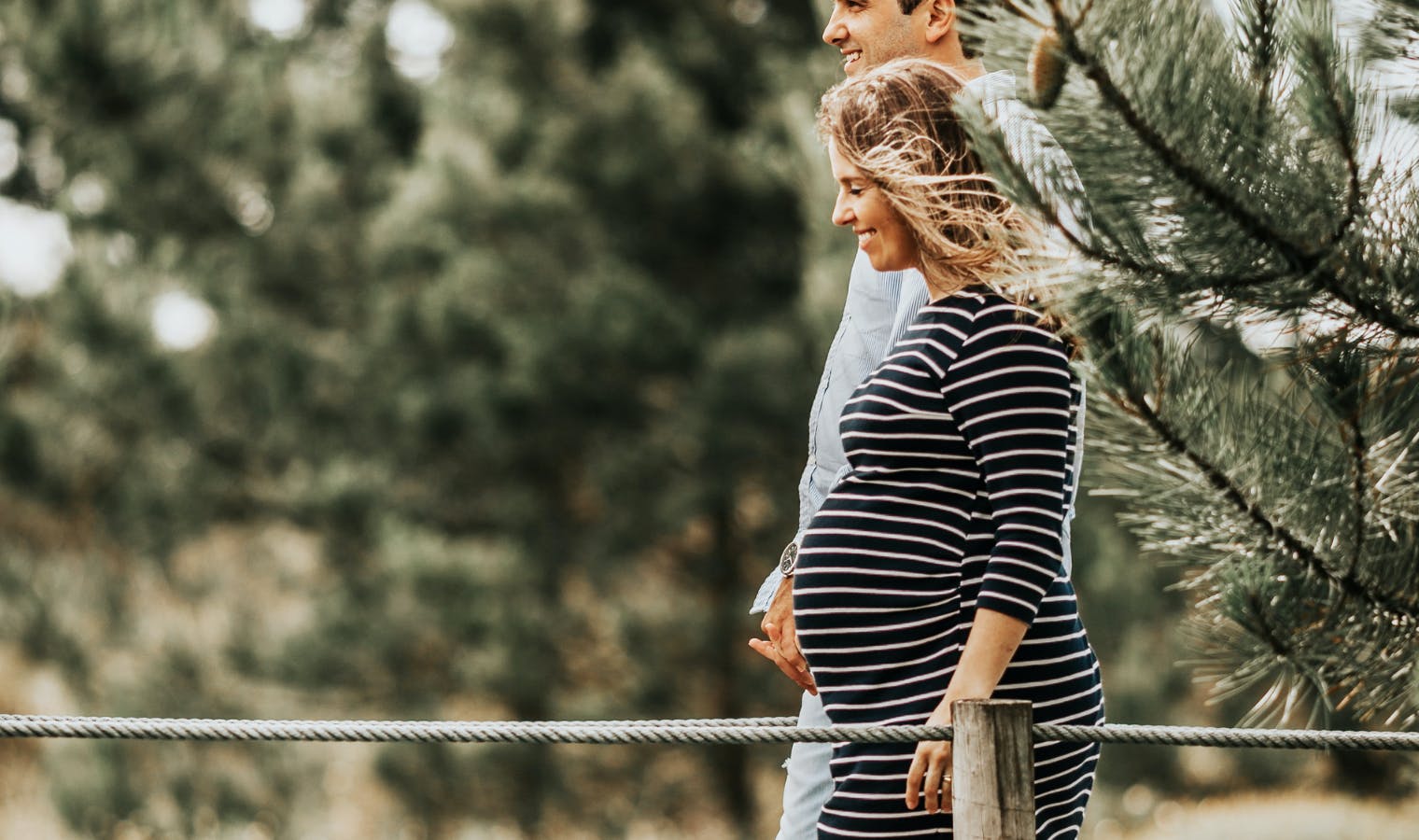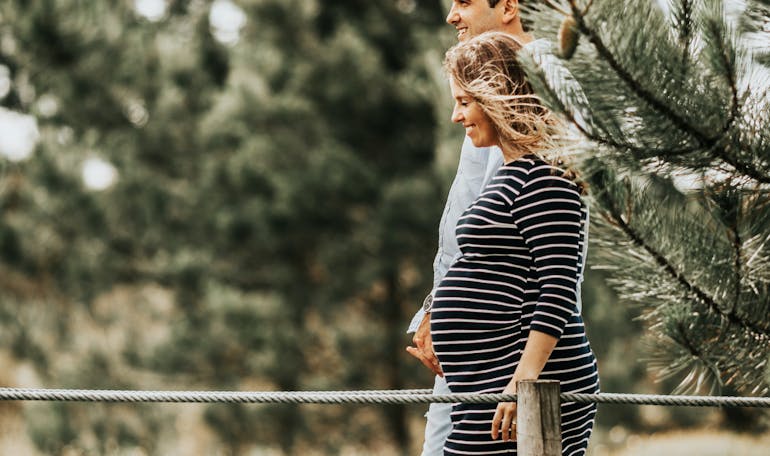Our ultimate guide to dealing with hay fever when pregnant or breastfeeding
Reviewed and fact-checked by Giulia Guerrini, Superintendent Pharmacist. Read our editorial policy to see how we create informative, accurate content.
Congratulations! If you’re reading this, you’ve probably got some good news to share and a little one on the way. As you’ll know, pregnancy can come with challenges – and we’re not just speaking about morning sickness.
Hay fever when pregnant can be a bit of a nightmare during spring and summer. Sneezing, wheezing, itchy eyes and nasal congestion are not exactly helping you to have the glowing pregnancy you want. Thankfully, you can get hay fever relief when pregnant and breastfeeding, but you should know that not all medication is safe for your unborn baby. Here’s everything you need to know about hay fever in pregnancy and for breastfeeding mums.

Are hay fever symptoms worse when pregnant?
If you suffered from hay fever (an allergic reaction to pollen) before you were pregnant, or are experiencing symptoms for the first time, you’ll know how unpleasant they can be. They’re the same whether you’re pregnant or not, but they may seem worse when you’re expecting. The reason for this isn’t clear just yet, but it’s thought that hormonal changes in your body can cause it. And there’s a lot of that happening when you’re pregnant. You might have more nasal congestion than you’ve come to expect, but that’s perfectly normal and quite common.
Can I take hay fever tablets when pregnant or breastfeeding?
Whether you’re pregnant or a breastfeeding mother, you should speak to a doctor or pharmacist before taking any medication. We have a pharmacist on hand who’ll be happy to help with expert advice.
Some medications – even over the counter ones – may affect the development and growth of your unborn baby. If your hay fever is very mild you should avoid taking any medication, or maybe opt for a natural remedy.
Our pharmacist recommends Xailin Sterile Eye Wash Solution to help treat irritated eyes caused by hay fever and Sterimar Hayfever and Allergy Relief Spray to help with any nasal congestion, which are both safe to take when you’re pregnant.
Just like with pregnancy, you should speak to a doctor or pharmacist before taking any medication while you’re breastfeeding, as it can be passed on through your breast milk. Try the eyewash solution and allergy relief spray mentioned above, and if they don’t help to relieve your symptoms, speak to your doctor or pharmacist. They might be able to recommend other over the counter medications that can be taken after feeding times.
Why expecting mums should consider natural hay fever remedies
It’s best not to take any unnecessary medication, like hay fever tablets, when pregnant. However, that doesn’t mean you need to suffer from symptoms such as nasal congestion. There are a quite a few natural remedies that you could try before speaking to your doctor about medication. Here are just a few of them:
- Pop a few drops of Numark Eucalyptus Oil 10ml into a bowl of hot water, and breathe in the steam
- Use a saline sinus rinse for nasal congestion – or a saline spray, like Sterimar Hayfever and Allergy Relief Spray
- Dab some Vaseline Petroleum Jelly – or coconut oil – around your nostrils to trap pollen
- Eat a teaspoon of local honey each day: this might help to build up a tolerance to local pollen
- Shower and change your clothes after going outside, to wash off pollen
- Keep windows closed in your home
- Try reflexology or acupuncture
- Try chamomile tea: the NHS recommends no more than 4 cups of herbal tea a day
- Try Optibac Probiotics for Pregnancy to help build your immune system
- Keep an eye on the daily pollen count, so you can try and limit your exposure
Can babies get hay fever and is it genetic?
Unfortunately, yes. The symptoms are much the same as in adults, but they can be mistaken for a cold. Your little one may have itchy, red or watery eyes, sneezing or coughing, wheezing, nasal congestion, a runny nose or be more tired than usual. It’s always best to have your baby checked by your GP if they have these symptoms. Your doctor will be able to tell you if your baby’s symptoms are from an allergic reaction to something like pollen, or if it’s something else.
There is a strong genetic link for hay fever in families. That doesn’t mean your baby will develop it, but it does raise the chances. If you have any concerns, you can chat with our pharmacist who’s always happy to provide expert advice.
If you’re looking for some natural hay fever remedies like Vaseline, chamomile tea or Sterimar Spray, we’ve got them in stock – ready to deliver tomorrow.


